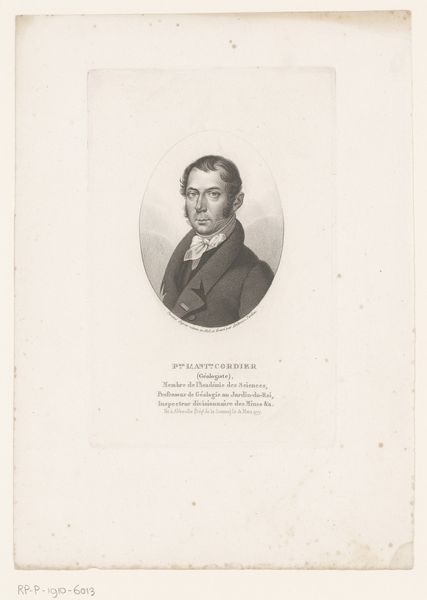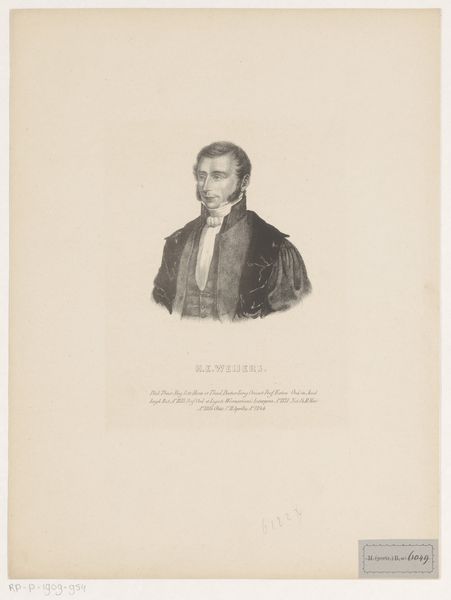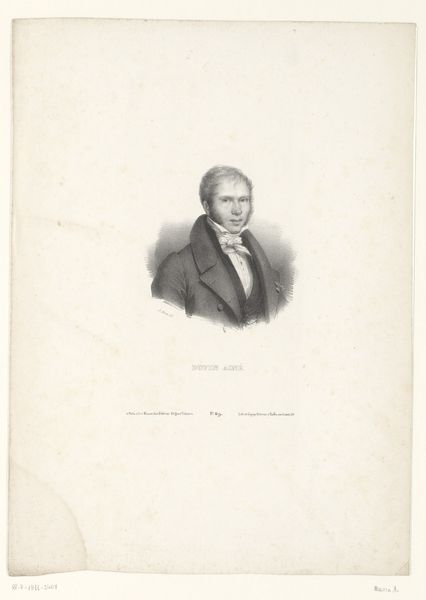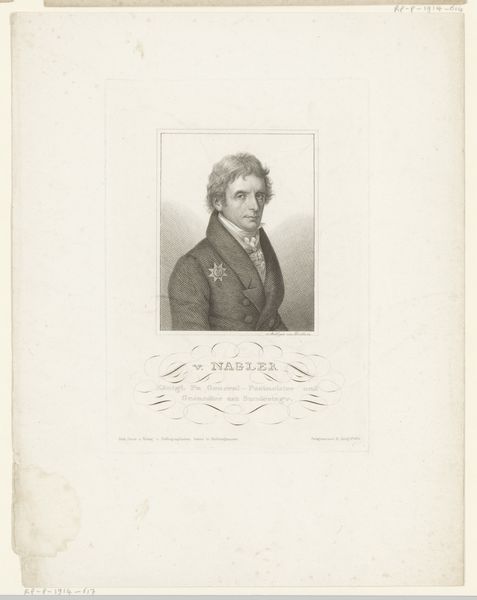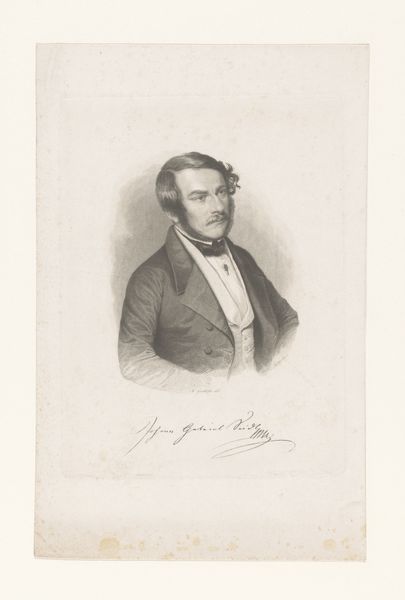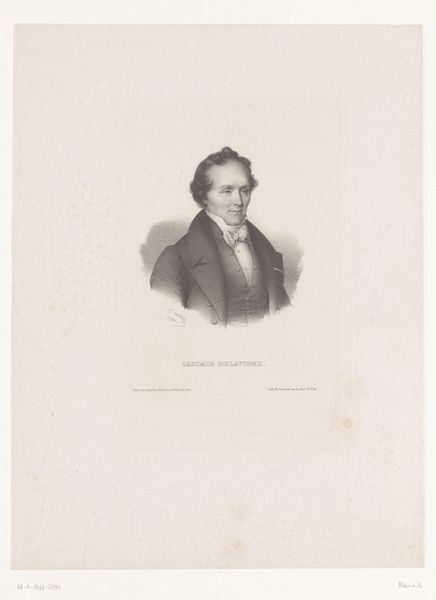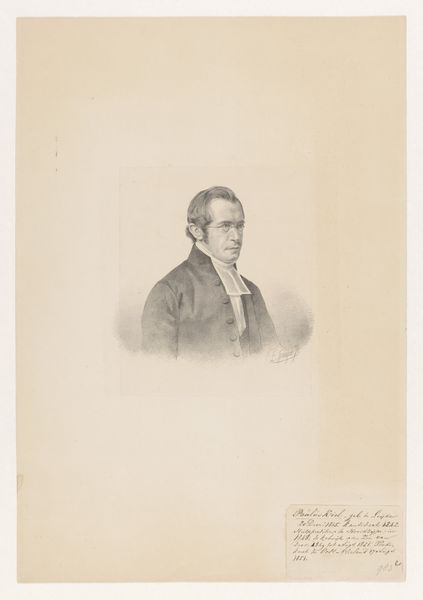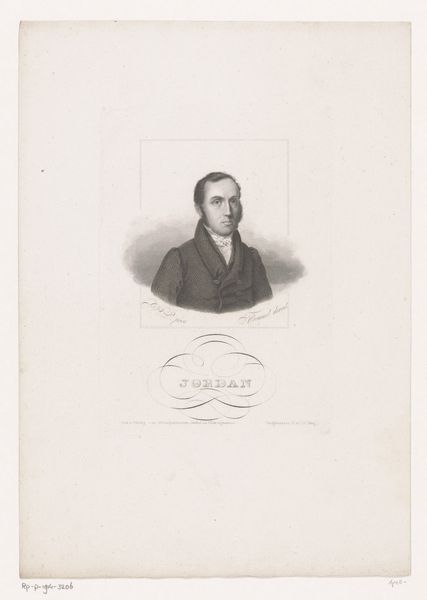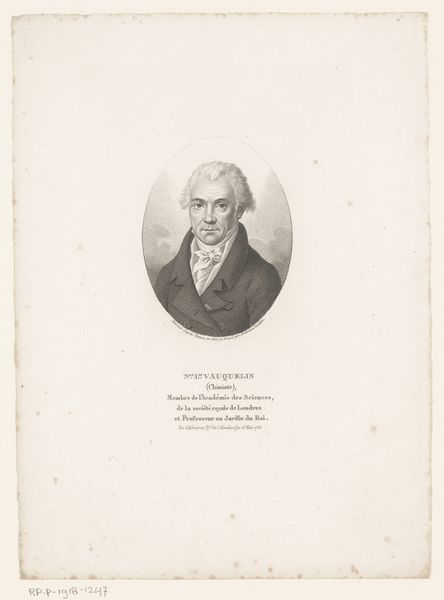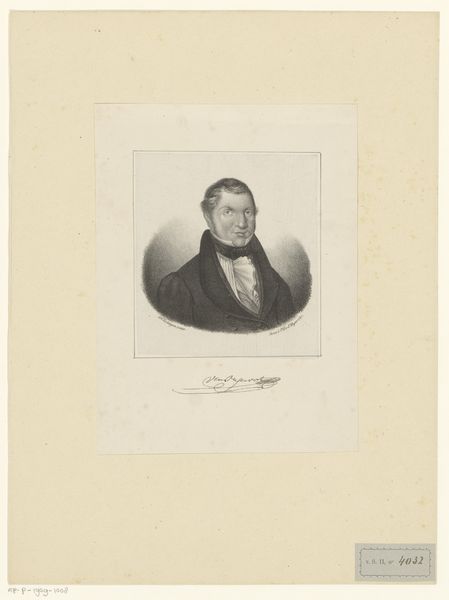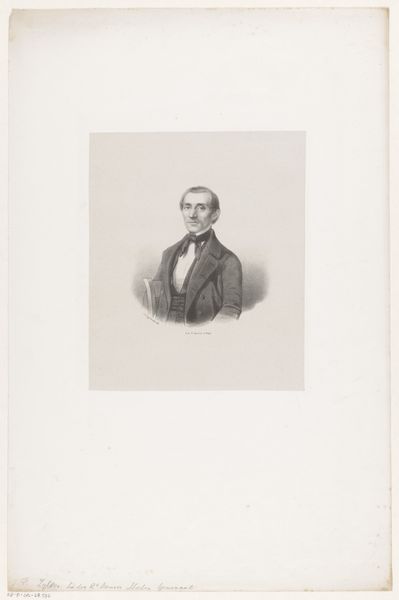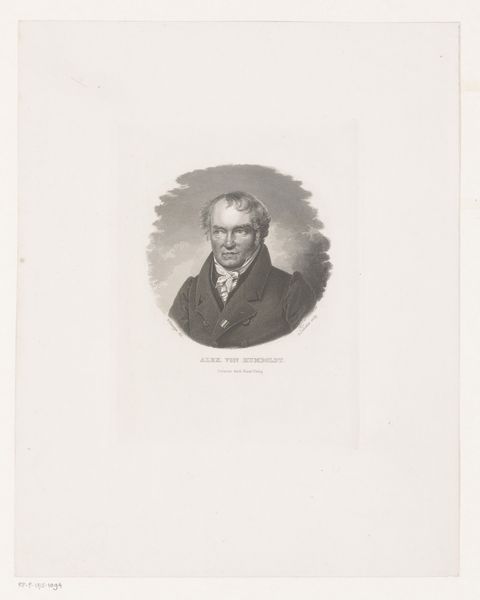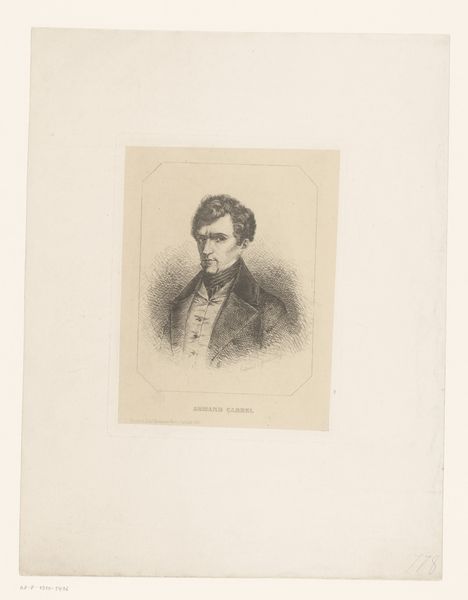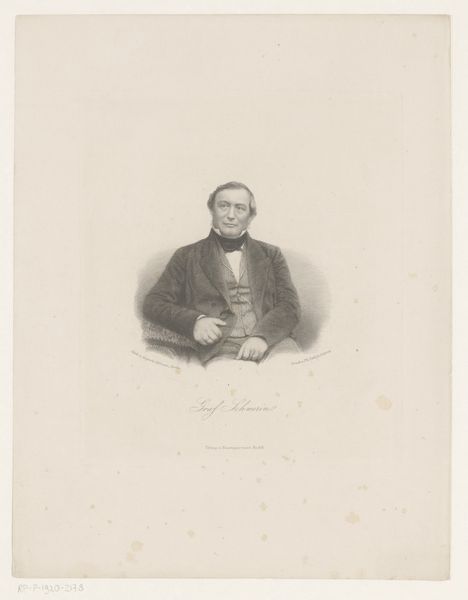
drawing, print, pencil, engraving
#
portrait
#
pencil drawn
#
drawing
#
light pencil work
# print
#
pencil sketch
#
light coloured
#
pencil drawing
#
romanticism
#
pencil
#
pencil work
#
engraving
#
realism
Dimensions: height 489 mm, width 319 mm
Copyright: Rijks Museum: Open Domain
Editor: This is "Portret van Hendrik Engelinus Weyers," made sometime between 1809 and 1844 by Leendert (I) Springer. It’s a pencil drawing and print. I'm struck by the almost photographic realism achieved with such simple materials. How would you interpret the impact of the printmaking process here? Curator: What's compelling is the material evidence of labor embedded within this seemingly simple portrait. It's not just about representation; it's about the deliberate actions, the cutting of the plate, the precise application of pressure. Do you consider how these factors influenced the mass distribution and the cultural capital embedded within each print? Editor: So, you’re saying that its value lies partly in its reproducibility? Curator: Exactly. This work prompts us to consider the context in which such prints were consumed, reproduced, and circulated. Notice how the engraving, inherently a repeatable process, democratizes portraiture. It shifts from being exclusively available to the wealthy elite. Editor: That's a great point. Did Springer make multiples of this piece? Curator: Most likely. The engraving suggests the intention to produce multiple impressions for wider consumption. Thinking about its impact as a commodity brings the material and the socio-economic implications together. Do you find any tension in it being classified as ‘fine art’ rather than a printed good? Editor: I see what you mean. That line does seem blurry when we consider the labor involved. It encourages you to look closer at how society assigns value to different artistic endeavors. Thanks! Curator: Absolutely, considering its social and economic facets makes the image resonate more fully.
Comments
No comments
Be the first to comment and join the conversation on the ultimate creative platform.
